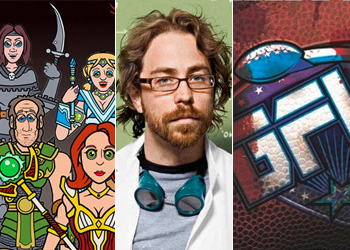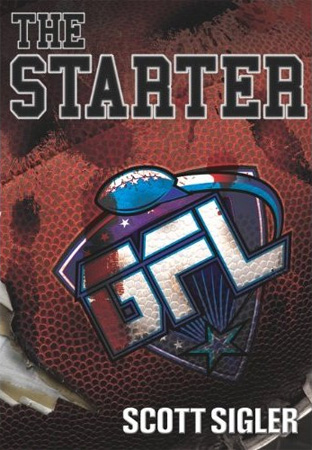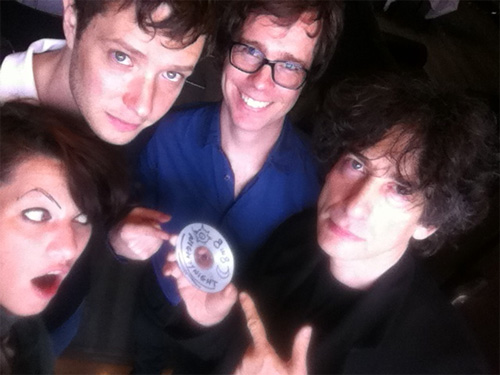
A topic that’s been on my mind a lot lately is the idea of giving away creative works for free as a way of attracting an audience. Quite a bit has been written about the topic from the point of view of the artist, but since I am not an artist myself, I thought I’d write about my perspective as a consumer of media. As always, this isn’t meant to be at all comprehensive, and I’m sure I’ve missed plenty of things (probably even some obvious ones). Feel free to share other ideas in the comments.
First off, I have a couple of confessions to make. I have a decidedly anti-corporation streak in me that traces its roots to my much more liberal days in college and grad school. I’m also quite frugal (I suppose you could say cheap). I’m sure you can guess what that means for my media buying habits. When I first encountered podcasts, especially podcast novels, I very much loved the concept. I could get free entertainment directly from the producers of that content. Couple that with libraries, and my budget for entertainment was practically zero.
Then a funny thing started to happen. Listening to Scott Sigler and J.C. Hutchins talk to their audience, I began to feel a sense of relationship with these guys that I’d never even met in person before. And I began to realize that if I wanted more content from them (which I still do), then they needed to be able to write. And that meant they needed money. Thus it felt important for me to start purchasing their works even though I could get them for free. It’s an interesting change in my attitude, especially since it was precisely the fact that they were willing to give away their content for free that convinced me to part with my money.

Since then, I’ve discovered many other artists who give away at least some of their content for free: Jonathan Coulton, Cory Doctorow, Felicia Day, Wil Wheaton, and others. There are also plenty of places to find artists giving away free content: Bandcamp, Scrub Club Records, Podiobooks.com, etc. Even established authors have experimented with giving away content for free. Neil Gaiman gave away American Gods for free for a limited time. He also put together a series of videos of him reading The Graveyard Book in its entirety on YouTube (I can’t seem to find the whole thing anymore, however, just scattered bits). More famously, Radiohead and Nine Inch Nails have given away their music (or at least used the “pay what you like” system which is similar) with great results.
It seems that we’re on the cusp of entering a “New Patronage Society,” a term I first discovered in a talk given at Harvard by Amanda Palmer (who also gives away her music for free at Bandcamp). This idea is also expressed eloquently in this video. During the Renaissance, rich patrons sponsored artists of all kinds so that they could create art for a living. In the “New Patronage,” it can be anyone with a dollar who sponsors artists. There are plenty of ways this can happen: Give away the content for free, but charge for a premium (the freemium model; e.g., a “special edition” or even a physical copy). Give away the content for free, but put out a tip jar. Allow people to experience the content for free in one way (e.g., Bandcamp where you can listen online for free), but charge for other versions (Bandcamp artists can charge (or not) for downloadable music). Give away all content for free and make money on other sales (e.g., t-shirts, concerts, etc.). There’s the “1000 True Fans” idea in which an artist only needs 1000 “True Fans” (I’m aware of the implications of the term, but the idea is what’s more important) who are willing to pay $100 a year for everything the artist puts out (yup, that adds up to $100,000 per year — certainly more than what I make!). Everyone else can get the content for free (or pay on an individual basis). There are, of course plenty of other models out there. Sure, not all of these work for every artist, but that’s fine: they can pick what works for them and go for it.
Since I’m not an artist myself, I won’t go into more detail about the methods and justifications for giving away content for free. I’ve included several links below for you if you want to do your own research. Instead, I want to speak to my fellow consumers of media. The Internet, with nearly free storage and high bandwidth capacity, practically requires digital content to be free. That’s one reason pirating is so prevalent. In order for artists to make a living, however, they need to get paid. And that’s where we consumers and fans come in. We have tons of entertainment choices out there, many of which we can have for free. We need to change our attitudes towards free content. Just because something is free, doesn’t mean it does not have value. We need to “vote with our dollars,” financially supporting those artists from whom we want more content.
That’s not to say that we can’t ever consume free media without giving money. In the video mentioned above by Amanda Palmer, she likens the situation to her days as a living statue. Some people would enjoy what she was doing, but simply walk on by. Others, however, would stop and give a little (or a lot). Both types are necessary; the one supports the other. I embrace this idea wholeheartedly, and I’d like to end with another quote from Amanda Palmer from her commencement speech at the New England Institute of Art: “There is an unwritten code out there right now, especially online, that we’re all helping each other to build a beautiful, crazy, lawless new world where there are no rules about how it gets built. We are making the rules up as we go along, and we are changing them every single day.” I couldn’t agree more.

Some links for further exploration (by no means exhaustive, of course):
The (free) audiobook version of Chris Anderson’s book, Free: The Future of a Radical Price.
A critical review of Chris Anderson’s book, Free: The Future of a Radical Price by Malcolm Gladwell.
Scott Sigler, writing on Joe Konrath’s blog, says: “If you hear only one thing in this rambling blog, hear this — we give all the stories away for free, and people still buy them. There is something to be said for having the confidence that your storytelling and production chops are just that bad-ass, then letting the customer decide if the content merits their money. We don’t hold content hostage.”
Although Michael Stackpole does not specifically advocate giving away content for free, he does advocate writers being in control of their own works, especially in digital form.
Fraser Cain, astronomy podcaster, has this to say: “From here on out, success is analog. As a content creator, the tools are inexpensive. Anyone who wants is free to write a novel, record a song, or create a video. But even more importantly, the distribution network has become effortless. You don’t need to wait for a DJ to play your song on the radio, you can sell it on iTunes. You don’t need a movie deal, you can release it on YouTube. ”
This is a list of twenty-nine ways in which musicians can make money from their work, other than simply selling their music.

Jonathan Coulton was recently featured on NPR’s Planet Money podcast. It’s worth checking out this whole post (as well as the podcast and follow up discussion), but I’d also like to include this quote: “The revolution in the music industry (which has already happened by the way) is one of efficiency, and it means that success is now possible on a much smaller scale. Nobody has to sell out Madison Square Garden anymore to make a living.”
Kim Boekbinder (whose music you can hear on Bandcamp) recently (and successfully) experimented with pre-selling tickets to a live show via Kickstarter. I didn’t specifically mention Kickstarter in the article because it’s not exactly giving away content for free, but I do feel it’s worth mentioning because it fits with the spirit of independent artists taking control of their content.
Author Patrick Hester and musician John Anealio from the Functional Nerds podcast discuss their thoughts on the changing landscape for artists. John closes by saying, “To conclude, whatever you do with this, do it because it’s fun. Don’t put together some big business plan with thoughts of financial success. To be frank, most of us aren’t going to be able to make a living doing this, so use your art to express yourself, say exactly what you want to say and have fun. Being artistically satisfied and having a good time will help you to be consistent and to stick with it, which ironically, will give you a greater chance of success.”








Thanks to a tweet from Neil Gaiman, I’ve located The Graveyard Book video link:
http://www.mousecircus.com/videotour.aspx
Check it out, then buy the book!